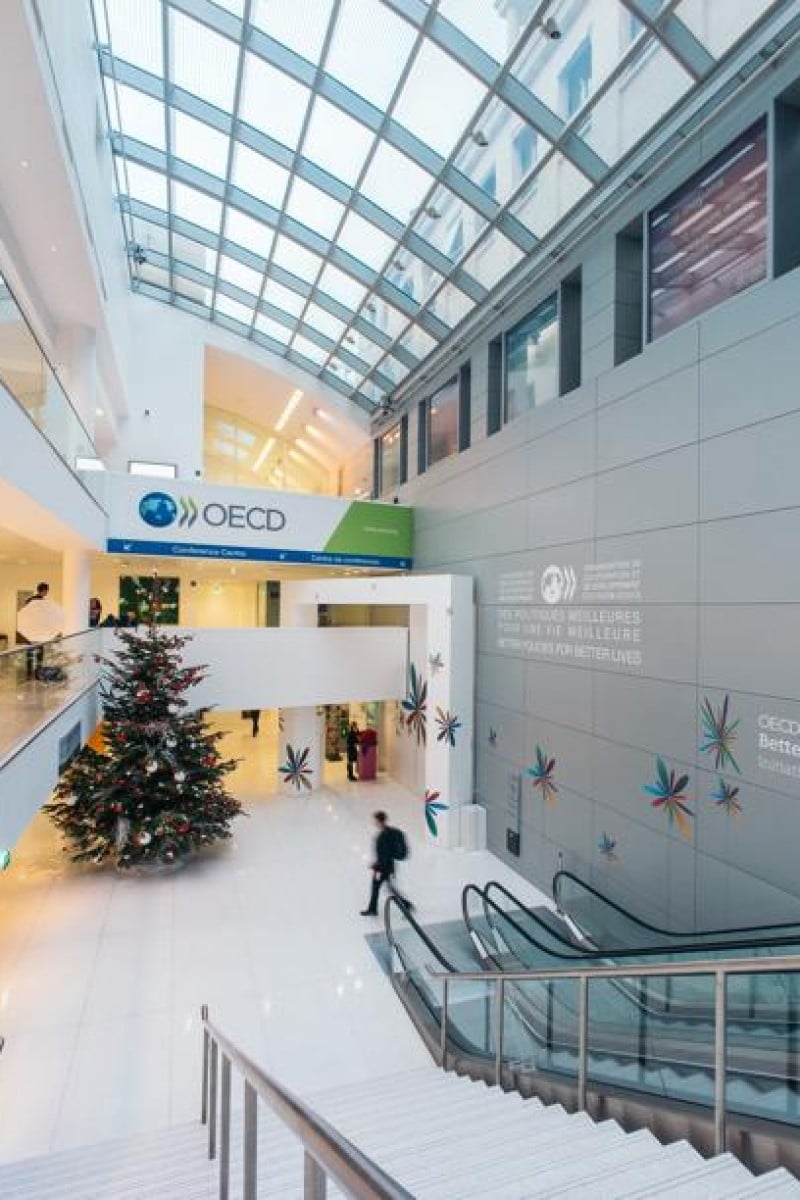
A look at the history of the organisation for Economic Cooperation and Development, and how it can stay relevant in the modern world


For decades, strengthening transnational cooperation has been a cornerstone of global economic policy. But, in recent years, anti-globalist movements have grown significantly, thanks to far-right politicians and rising nationalism in the Western world.
Regardless, international institutions promoting multilateral economic development have largely maintained influence and relevance, especially among policymakers. One such institution is the Organisation for Economic Cooperation and Development (OECD), based in the French capital of Paris.
Not unlike a number of other international organisations, the OECD traces its roots back to the peacemaking efforts that followed the second world war. Its predecessor, the Organisation of European Economic Cooperation (OEEC), was mainly founded to oversee the United States’ Marshall Plan. The Marshall Plan was a massive aid programme, worth more than US$140 billion in today’s money, introduced to rebuild post-war Europe and ensure cooperation between Europe and the US. The OEEC’s vision centred on strengthening Europe through economic interdependence and mutually beneficial programmes. It hoped to promote European trade through the reduction of tariffs and related trade barriers, and boost growth and employment in European countries. Its original membership consisted of 18 countries, including the Britain, France, Italy, and then-West Germany.
The OEEC evolved into the OECD in 1961. The OEEC was phased out mainly because most of the European rebuilding effort was completed by the late 50s, and European economies were beginning to enjoy post-war prosperity. With the OEEC’s main purpose largely achieved, it seemed to lack a clear vision, but its members saw great value in a similar international forum. Hence, the OECD was born, and it soon became a global institution which included the US and Canada. Since then, the OECD has expanded to include 35 mostly rich countries.
Together with five “key partners” – Brazil, India, China, Indonesia, and South Africa – the OECD is today responsible for some 80 per cent of global trade and investment flows. It has undergone three waves of expansion. The first was from 1964-1973, with the inclusion of Japan, Finland, Australia, and New Zealand. Between 1994 and 2000, the Czech Republic, Hungary, Poland, South Korea, and Slovakia joined the organisation, followed by Chile, Slovenia, Israel, and Estonia (2009-2010). The most recent addition to the OECD is Latvia, which became a member in 2016. As of now, the OECD is in talks with Lithuania, Colombia, and Costa Rica about joining the “club”. The OECD stopped negotiations with Russia in response to its invasion of Crimea in 2014.
The OECD’s mission is to “stimulate economic progress and world trade”, with its members committed to democracy and a market economy. Some of the organisation’s early achievements included the Model Tax Convention of Income and Capital – a successful template for bilateral tax negotiations. In the same vein, the OECD passed its Guidelines for Multinational Corporations, and the Codes of Liberalisation of Capital Movements and of Invisible Operations – all with the objective of smoothening negotiations between countries interested in economic liberalisation.
The OECD has also played an important role in linking economics with environmental advocacy. In 1972, it set up the Polluter Pays Principle, which has since been included in the legislation of countries around the world. Thanks to the agreement, those who produce pollution should bear the costs of managing it.
With its liberalisation initiatives largely successful, the OECD became more active in business ethics, international aid, and education. In 1997, the institution signed its Anti-Bribery Convention, which set out legally binding standards for member states with regard to corruption and dishonest business practices.
In 2000, it launched the well-known Programme for International Student Assessment, which tracks the educational standards of 15-year-olds in member nations.
In 2001, the club released its Recommendation on Untying Aid to Least Developed Nations, which called on donor countries to not tie development aid to trading with their companies.
With an annual budget of around US$500 million, the OECD avoids much of the flak directed at organisations such as the World Bank, which is often accused of being bureaucratic. But to ensure its continued relevance, the OECD must fund research into pressing issues today, especially climate change and income inequality. Finally, if the OECD is to have a meaningful impact, it must expand beyond wealthy Western countries. This could lead to better international cooperation, benefiting people all around the world.
This article includes research conducted by the Harvard National Model United Nations on this topic.
Edited by Ginny Wong
